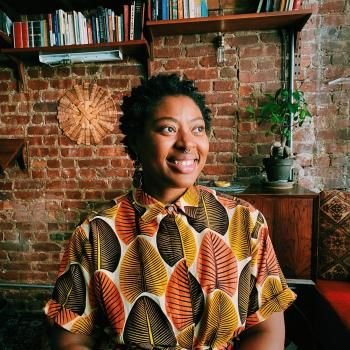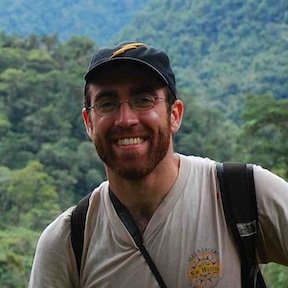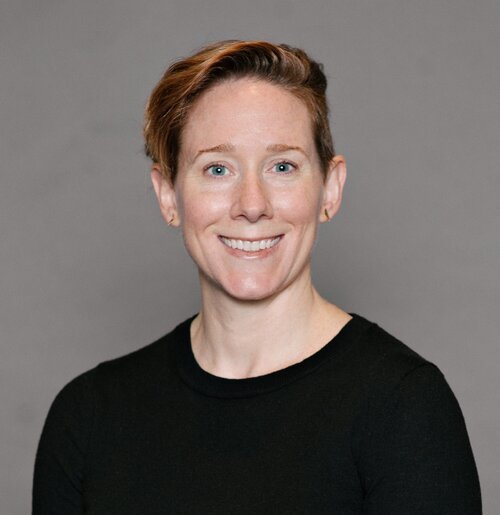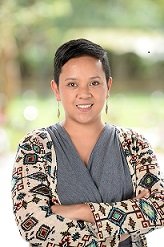Presentations
This page includes titles, keywords, abstracts, videos, and transcripts of all presentations given at the workshop in October 2023.
Tuesday, 10 October 2023: Recruitment & Pedagogy
he/him
archaeological field school, accessibility, inclusion
William A. White, III
Assistant Professor, UC Berkeley Department of Anthropology
Bringing Archaeological Field School to School
Field experience is considered a capstone experience for archaeologists in the United States. Entry-level archaeological technician positions in the U.S. routinely require an undergraduate degree from an accredited college in anthropology or a related field, and an archaeological field school. There is also a preference for students with field experience among graduate programs. While field experience is important, the expense in time away from home and money has traditionally kept students who are Black, Indigenous, and People of Color (BIPOC), low income, parents, and/or have disabilities from participating in archaeological field schools taught in remote locations. This reality is both tragic and unnecessary since most university anthropology departments are more than capable of teaching most of the basic skills required of an archaeological technician on campus; they just haven’t started doing it. This presentation examines two different strategies the presenter has taken to help students of all backgrounds gain the fieldwork experience that will help them land gainful employment as an archaeologist.
they/she
collaboration, Black Early Career Faculty, HBCU, field school
Ayana Omilade Flewellen
Assistant Professor, Stanford University Department of Anthropology
SBA’s The Estate Little Princess Archaeology Project: Creating Pathways for Black Students and Black Early Career Faculty in Archaeology
This presentation will center on the Society of Black Archaeologists program, The Estate Little Princess Archaeology Project (ELPAP), and the pathways it creates to recruit and retain Black students and Early Career scholars in the field. This presentation opens with a brief history of the SBA to orient workshop participants to the need and importance of field school opportunities that specifically target historically marginalized students. The successes of the ELPAP lie in its ability to train students predominately from Historically Black Colleges and Universities and provide professionalization skills for Black Early Career Faculty. Topics discussed will cover funding possibilities and challenges, recruitment successes and failures, the sticky and the sweet of collaboration among archaeologists, and the question of sustainability and burnout.
she/her
compensation, salary inequities, cost of living, career progression
Dana Bardolph
Assistant Professor, Northern Illinois University Department of Anthropology
Navigating Compensation Realities: Unraveling Salary and Cost of Living Dynamics Among U.S. Academic Archaeologists
This paper delves into the complex realm of compensation disparities encountered by academic archaeologists by examining the interplay between salary structures and regional cost of living variations. Today’s hyper-competitive job market and the decline of tenure track job availability have profound effects on early-career scholars' prospects and institutional stability, with resulting burdens on contingent faculty straining academic quality, research output, and student mentorship. Furthermore, gendered and racial salary disparities persist across U.S. academia, with studies revealing that women and BIPOC academics continue to earn less than their white male counterparts across disciplines. I explore discrepancies in compensation across professional ranks and geographic locations within U.S. academic archaeology, drawing on public salary databases and cost of living indices. My goals are to combine these quantitative data with future qualitative interview or survey data, and to use this workshop as a springboard for feedback for future research. I hope to engage workshop participants as they are comfortable sharing information about how compensatory and cost of living issues affect them, and to initiate a dialogue about how potential collaborative efforts, institutional reforms, and policy interventions might enhance future financial stability and equitable treatment for professionals across the spectrum of archaeological practice.
he/him
reflexivity, positionality,
relationality, accountability
Lewis Borck
Assistant Professor, The University of Oklahoma Department of Native American Studies
Personal Histories and Paths To Archaeology
While visible reflexivity such as positionality statements are the norm in some fields, they are almost absent sans a few excellent examples within archaeology. Outside of archaeology, their use is generally equated with either building a relationship with the reader (via relationality within Native American and Indigenous Studies for example) or facilitating the reader’s critical interpretation of the research (e.g., via strong objectivity and standpoint theory within feminist literature). Their rare use in archaeology follows similar patterns. Their lack within archaeology leads to a paucity of transparent, and experiential, ways of engaging with your colleagues' histories. This can contribute to feelings of shame and alienation within the discipline and a struggle to build community and create networks of care and solidarity. Trying to overcome this alienation has led to the emergence of many wonderful coalitionary collectives and organizations in the last decade. This presentation will focus on the positionality of the author and his experience in the discipline. It will use his background (and others) to make an argument for a new internship/externship system to replace the current field school system, which raises substantial barriers to those entering the academy and archaeological workforce from outside of dominant communities.
he/they
LGBTQ+ rights, fieldwork, bias
Christopher Schmitt
Assistant Professor, Boston University, Department of Anthropology & Biology
Queering the Field: Challenges and Prospects in Field-Based Anthropological Research
Although being queer or LGBTQ+ is increasingly accepted in academic contexts internationally, and many countries show an increased willingness to protect the rights and well-being of LGBTQ+ individuals, this progress is rarely felt outside urban areas. This poses special risks for LGBTQ+ field researchers and others who work in field-based conditions. The risks faced by LGBTQ+ anthropologists are by no means simple or universal, as multiple identities (sex, gender identity, gender presentation, race, nationality, ethnicity, sexual orientation, socioeconomic status), their intersections, and how they are perceived in the field context can compound or mediate these risks. This talk will explore some of these risks and how they intersect, at their core, with gender-based bias. Although this talk is rooted in the experience of the speaker as a male-presenting queer white man working in rural west and south Africa and Latin America as a starting point, there will be further discussion of published accounts rooted in other identities. This will be a short discussion of these issues and how to mediate them in field-based research programs and disciplines.
Panel: Making Community: Opportunities for Building Solidarity
Panelists: Lewis Borck, Ayana Omilade Flewellen, Sara Gonzalez, Laura Heath-Stout, William A. White, III
Moderator: Allison Mickel
Wednesday, 11 October 2023: Data Collection
she/her
labor, data collection, anticapitalism, kinship, reciprocity
Allison Mickel
Associate Professor, Lehigh University, Department of Anthropology
Data Collection Against Extraction
The model of labor management employed on an archaeological excavation shapes the ultimate archaeological assemblage and record. The tasks to which workers are assigned, and how they are treated and paid affects the amount, nature, and quality of data collected. Especially in the Middle East, the management of archaeological labor has traditionally followed capitalist logics: maximize output at minimum cost. Excavation workers receive minimal pay while expected to dig quickly, locate artifacts, and—as archaeology has become a science—produce as much data as possible. Such Taylorist organization of archaeological labor has come at the cost of community-building and workers’ well-being, as well as the quality of scientific research (see Mickel 2021). Recently, a number of projects have experimented with inventive labor management approaches and adjusted accordingly their definitions and expectations around data collection. Here, I present some of these strategies and discuss how they are predicated on alternative logics rather than capitalist extraction—instead prioritizing obligations around kinship, reciprocity, and local expertise. I discuss how such alternative labor models necessitate and generate new strategies for data collection and as a result, create novel archaeological knowledge.
she/her
emergent methodology, noticing, rigor, incommensurability, ethics
Kathryn Clancy
Professor, University of Illinois Urbana-Champaign, Department of Anthropology
Feminist Anthropology: Emergent Methodologies as Acts of Noticing
Anthropologists practice the “art of noticing,” a practice that trains us less to listen for a single dominant melody than for the polyphony of life (Tsing 2015). Noticing may be what brought us into anthropology, yet it is what is often trained out of those of us who are quantitative researchers. While there can be considerable power in gold standard methodologies, I want to argue here that there are incommensurabilities (Liboiron 2021) between the questions we ask and being increasingly encouraged to produce replicable methodologies; collect large, homogeneous datasets; pre-register our projects; only measure prospectively. We are up against different incommensurabilities depending on subdiscipline, but we need to acknowledge that some of the moves towards “rigor” – often necessary when we apply for extramural funding or try for higher impact journals – have value systems embedded in colonialism, racism, and paternalism towards our research participants. I will use the example of the BLEEDVAX collaboration to illustrate the incommensurabilities we continue to face as we have collect, manage, analyze, and disseminate our work. Yet emergent methodologies that employ on-the-ground methods in constant conversation with participant constituencies can offer considerable insight into experiences that are silenced, stigmatized, or understudied.
she/her
anthropology of the hometown, auto ethnography, time
Dada Docot
Assistant Professor, Purdue University, Department of Anthropology
Sun, Sea, Sand, and Study: Ethical Challenges in Doing Anthropology at Home During Limited Time
"Here come the anthros, better hide the past away. Here come the anthros on another holiday," sang Dakota Sioux country musician Floyd Westerman in his masterful critique of anthropologists who come to Native American communities on their funded research holidays. Anthropological ethnography is the method by which we claim our data's thickness and weight, and it is through ethnographic data that we establish our expertise. Johannes Fabian, in “Time and the Other,” critiques anthropological data collection as one that is “aimed at instituting a time-economy.” In this time-economy, anthropologists institute techniques such as learning the fieldsite’s language before arrival or mapping a village while on-site to manage limited time. According to Fabian, such techniques produce what he calls a “caricature of ethnography” which tends to maximize possibilities for knowledge production through omitting “experiential noise.” What does this “timeeconomy” look like for anthropologists working within the Western academic calendar and what “caricatures” do we produce in this era amid pressures to produce even more? I present as a US-based anthropologist of the Philippines and the diaspora who navigates knowledge production, leisure, and rest, within the limits of the fast-ticking pre-tenure clock.
she/her
Indigenous archaeology, community-based participatory research, field school pedagogy
Sara L. Gonzalez
Associate Professor, University of Washington Department of Anthropology
Building Knowledge With: The Lessons of Indigenous, Community-based Archaeological Practice with the Confederated Tribes of Grand Ronde
Paper co-authored with Briece Edwards, Yoli Ngandali and Ian Kretzler.
Since 2014, Field Methods in Indigenous Archaeology has worked in partnership with the Confederated Tribes of Grand Ronde Community of Oregon’s Historic Preservation Office to create a Grand Ronde way for doing archaeology. This approach is grounded in the values and protocols of the Tribal Nation and seeks to build the capacity of archaeology—and future archaeologists—to care for and protect Tribal heritage. Reflecting on the outcomes of this collaboration, I examine the broader lessons of both what it means to practice an Indigenous archaeology and how such approaches offer an alternative for what it means to doing archaeology in a good way. From prompting assessments of archaeological methodologies to restructuring pedagogy to altering the relations of our practice, I argue that the growing field of Indigenous, community-based archaeologies and their shared emphasis on equity and justice may provide sustainable frameworks for using archaeology as a tool to not only study, but offer solutions for some of the major challenges facing Indigenous communities and their heritage.
she/her
disability, disabled archaeologists, standpoint theory
Laura Heath-Stout
Post-Doctoral Scholar, Stanford University Archaeology Center
Nothing About Us Without Us: Disabled Archaeologists and the Archaeology of Disability
“Nothing about us without us” is a key tenet of disability activist movements, with disabled people insisting on inclusion in the decision-making processes that affect our lives. Yet archaeologists have very often interpreted disabled lives in the past without consulting us in the present. Only recently have archaeologists begun to engage in disability-focused equity and content critiques of our discipline. In this paper, I will present an overview of what we know about the numbers and demographics of disabled archaeologists, and the conditions under which we work. Then I will use theories drawn from feminist science and technology studies and disability studies to explore how building a more accessible and inclusive discipline of archaeology would allow us to tell more interesting and rigorous stories about disabled lives in the past. All the past communities we study had disabled members, and only through critical engagement with disability can we fully explore the past societies we aim to understand.
Panel: Ethics and Epistemology: The Challenges of Recruitment and Data Collection
Panelists: Kate Clancy, Andre Costopoulos, Allison Mickel, Christopher Schmitt
Moderator: Nick Kawa
Thursday, 12 October 2023: Data Dissemination
he/him
digital data, data sharing, questionable research practices, reputation
Ben Marwick
Professor, University of Washington, Department of Anthropology
Reputational risk and questionable research practices in archaeological science
Uneven access to methods and data is an important dimension of global inequality in archaeological knowledge production. Computational methods and digital data, because of their nonphysical nature, have high potential for rapid and low-cost distribution far beyond their points of origin. This represents an opportunity to improve access and participation for many scholars. In this paper I explore if reputational risk might explain some of the reluctance for archaeologists to share their materials. If researchers are concerned that sharing code and data may enable others to identify either intentional or accidental questionable research practices (QRPs) that would harm their reputation, then we might predict low levels of sharing to be accompanied by high levels of QRPs. Alternatively, if nonreputational factors such as a lack of awareness or time limitations better explain low levels of sharing, we might predict low levels of QRPs. I investigate QRPs by measuring the prevalence of p-hacking (manipulation of a data analysis to produce a statistically significant result) in 5000 journal articles. The results show a strong signal of p-hacking, supporting reputational risk as a factor in the persistence of inequalities in archaeological knowledge production. To address this I propose changes to research evaluation and communication of archaeological research.
he/him
publishing, knowledge production, professional development
Andre Costopoulos
Vice Provost/Dean of Students, University of Alberta
Is This an Academic Publication?
Why do we limit what “counts” as an academic publication? Why do we even care? Part of our role as academics is to engage in the production of new knowledge and new insights. We do this by proposing hypotheses and ideas, and helping each other evaluate them. We do this all the time, in all kinds of venues, from hallway conversations, to Tw(X)itter threads, to blog posts, to Letters to Nature. There is a broadly accepted hierarchy of these forms of knowledge production, which at least some of us wrongly associate with a ladder of trustworthiness. If we’ve been lucky enough, our role in knowledge production comes with a job. To evaluate the knowledge production side of our job, and whether we get one, whether we keep it, and whether we’re rewarded with increases in pay and job security, the academic community has come to assign differing values to these different kinds of contributions. We’ve done this partly in response to external pressures, and partly of our own free will. To our collective and individual detriment, and to the peril of our knowledge and insight seeking mission, values we assign to different kinds of contributions pretty much match the mistaken ladder of trustworthiness. I will argue that to foster the success of our mission, to increase equity in our community, to make our own individual lives more reasonable, and in the light of spectacular recent examples (Cave of Bones, The Cerutti Mastodon, LK-99 outside our discipline), we should “count” the sum total of our contributions based on their real impact on furthering the mission, regardless of venue or format. I will try to imagine how that might actually work.
he/him
zines, DIY ethics, publication, pedagogy
Nick Kawa
Associate Professor, The Ohio State University, Department of Anthropology
Welcome to the AnthropoZine! DIY Scholarship as an Alternative to the Peer-Reviewed Publication
Peer-reviewed publications remain the most accepted form of knowledge production and dissemination in academia today. But such formal publications are also deeply exclusionary, especially for undergraduate and early graduate students as well as scholars tackling highly stigmatized subjects. This presentation highlights the value of zines—do-it-yourself booklets that mix art and text in an eclectic assemblage—as a meaningful alternative. Drawing from my own DIY experiments with students and research collaborators, I make the case that zines offer several advantages compared to peer-reviewed publications. First, they are useful pedagogical tools that familiarize young scholars with the publication process, including guidance in composition, constructive feedback, and public dissemination. Second, they can serve to diversify anthropological scholarship by encouraging experimentation with text and image, as well as experiments in subject matter, voice, and literary form. Finally, because zines are self-published, creators exert considerable control over the production and distribution of the work that is shared—offering specific advantages from the standpoint of the political economy of knowledge production.
she/her
peer review, intervention, equity
Jess Beck
Assistant Professor & Ad Astra Fellow, University College Dublin School of Archaeology
Investigation and Intervention: Coming to Grips with Peer Review
In theory, peer review is an integral component of producing academic knowledge; the circulation of new work amongst experts should facilitate the constructive criticism necessary for rigorous scholarship. In practice, however, many of the rules and expectations surrounding the peer review process are opaque and unquestioned. Where is the line between quality control and gatekeeping? How can we solicit representative perspectives without burdening marginalized or precarious scholars? How do we handle the ethical conflicts surrounding the citation of bad actors who have published significant scholarly work? Critically investigating the tensions and contradictions that animate the process of peer review is essential during a time when the post-pandemic academy is experiencing a peer review crisis where reviewer fatigue is increasing and labour has become disproportionately distributed in a gendered way. In this presentation, I discuss two strategies for increasing transparency. First, I introduce an interview project I am developing to examine the assumptions and attitudes about peer review held by both journal editors and reviewers. Second, I describe ongoing initiatives within the journal Economic Anthropology that aim to establish clear guidelines and resources for early career reviewers and provide a forum for navigating the intricacies of citational politics.
she/her
open access, equity in publishing, equity in readership
Elizabeth Chin
Professor, ArtCenter College of Design; Editor-in-Chief, American Anthropologist
Access and Equity in Publication (Spoiler Alert: Open Access Won't Fix Everything)
Access and Equity in publication, in reading, in citation are bound up with questions ranging from the technical to the social. Prestige, platforms, and language play huge roles in who reads who, who cites who, and etc. How can readers from North America and Europe be more inclusive and expansive in whose thoughts they engage with? What might be done to challenge the hegemony of English? To what degree do different writing traditions privilege some ways of writing over others, naming one style "quality" over another? Digital access, or lack thereof shapes availability in increasingly important ways that exceed the (not so simple) baseline of open access. How are metrics in evaluation of both faculty and publications creating new problems and dilemmas? I will definitely raise more questions than I answer, but hope to provoke some ideas about how to attempt to create spaces of possibility.
she/her
citational politics, colonialism, decolonizing anthropology
Christen Smith
Director for the Center for Women’s and Gender Studies and Associate Professor of African and African Diaspora Studies and Anthropology, University of Texas at Austinmerican Anthropologist
Radical Citational Politics: Towards a New Anthropology
For generations, anthropologists have questioned anthropology’s colonial roots, and the racist politics the discipline espoused in the name of science until very recently. This paper examines the role that radical citational politics can and should play in the next step towards decolonizing anthropology. Although anthropology is becoming increasingly diverse, our bibliographic references still overwhelmingly reflect the scholarship of white men at the expense of fully incorporating non-white scholars generally, and Black women anthropologists in particular. This conversation considers how we, as anthropologists, can practically take steps to shift the discipline away from its colonialist tendencies by shifting the politics of citation.
Panel: Hidden Costs: Challenges to Equity in Data Dissemination
Panelists: Dana Bardolph, Jess Beck, Elizabeth Chin, Nick Kawa, Ben Marwick, Christen Smith
Moderator: Sara Gonzalez















